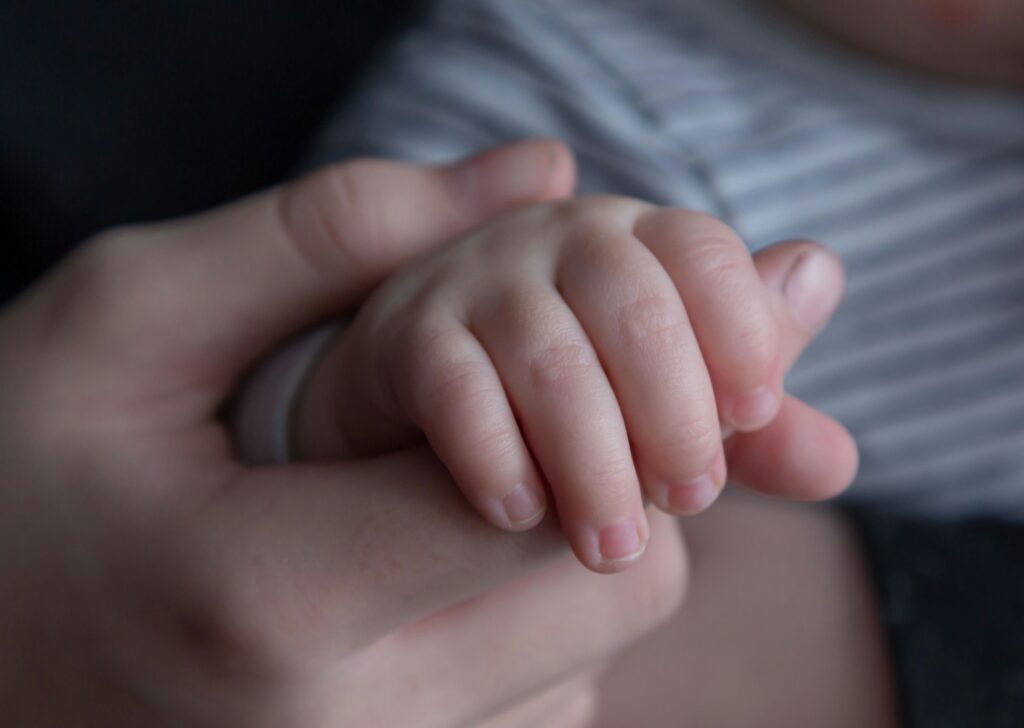SAMAR HAFEEZ, BANGALORE
“His mother bears him with pain, and brings him forth with pain.”[1]
Motherhood is an enjoyable yet extremely challenging event of life. It is one of the most significant physical and psychological transitions a woman undergoes.
While the experience of motherhood could be a combination of good and bad episodes, it is vital to speak openly about the complicated experiences so that new mothers make sure they are taking good care of themselves and their infants.
Maternal mental health matters
The birth of the child causes notable hormonal and emotional changes in a woman. From elation to anticipation and fear, new mothers are on a roller coaster of emotions. But what is most unexpected is the occurrence of something called postpartum depression.
Many new mothers experience something called ‘baby blues’ after childbirth. It is a very common hormonal issue that causes mood swings, anger, irritability, reduced or increased appetite and sleeplessness. It usually begins within 2-3 days after the birth and lasts for two weeks. However, postpartum depression is a far more serious mood disorder that could disrupt the mother’s self-esteem, motivation, physical well-being and newly formed identity. This condition is highly preventable and treatable with correct and adequate support, care and understanding by spouse and family members.
Symptoms
Postpartum depression usually develops within the first few weeks of childbirth but could also occur during pregnancy or up to a year after the child is born. The major symptoms of postpartum depression include:
- Depressed mood or sadness: Persistent feelings of sadness or hopelessness lasting over two weeks.
- Excessive worry: Constant, uncontrollable anxiety about various aspects of life.
- Loss of appetite: Significant decrease in appetite, leading to unintentional weight loss.
- Loss of interest or pleasure: Reduced enjoyment in activities that were once exciting or fulfilling.
- Demotivation: Feeling unmotivated or too fatigued to complete daily tasks.
- Sleep problems: Difficulty falling asleep, staying asleep, or oversleeping.
- Feelings of worthlessness or guilt: Strong feelings of inadequacy or overwhelming guilt.
- Difficulty concentrating: Trouble focusing on tasks or making decisions, even small ones.
- Inability to bond with baby: Struggling to form an emotional connection with the newborn, or feeling highly anxious around the baby.
- Feelings of being a bad mother: Self-doubt and constant thoughts of not being good enough.
- Frequent crying spells: Sudden, frequent bouts of crying for no clear reason.
- Social withdrawal: Isolating from friends and family or avoiding social interaction.
- Thoughts of suicide: Recurrent thoughts of ending one’s life or harming oneself.
- Fear of harming baby: Persistent, fearful thoughts about accidentally or intentionally harming the baby.
For a person to be diagnosed with postpartum depression, most of the symptoms should be present for over two weeks, causing moderate to severe dysfunction or difficulty in carrying out daily routine.
Risk factors
Several factors can increase the likelihood of developing postpartum depression. Here are some of the key contributors:
- Limited spousal and social support: Lack of emotional or practical help from a partner, family, or friends.
- Personal or family history of depression: A prior history of major depression or postpartum depression increases risk.
- Relationship or marital discord: Tension or conflict in relationships can contribute to emotional stress.
- Unplanned or ambivalent pregnancy: Mixed feelings regarding pregnancy or lack of preparation for pregnancy may elevate stress levels.
- Pregnancy complications: Complications during pregnancy or premature birth can heighten emotional strain.
- Young maternal age: Mothers younger than 20 are more vulnerable to postpartum depression than older mothers.[2]
- Single parenthood: Raising a child without a partner adds emotional and logistical challenges.
- Death of the spouse: The grief from losing a spouse can deeply affect mental well-being.
- Lack of breastfeeding: Challenges with breastfeeding or choosing not to breastfeed may influence mood.
- Previous abortions or miscarriages: Emotional scars from past pregnancy losses may impact postpartum mental health.
- Substance use: Smoking, alcohol, or drug use can contribute to emotional instability and increase the risk.
Coping strategies
Here are some effective ways to cope with postpartum depression:
- Talk to a trusted friend or family member: Open up to someone who will listen without judgment.
- Join support groups: Connect with other new mothers to share experiences and realise you’re not alone.
- Seek professional help: Consult a counsellor or therapist to work through your feelings.
- Get enough sleep: Aim for at least 7 hours of uninterrupted rest whenever possible.
- Eat healthy and exercise: Focus on a balanced diet and incorporate basic physical activity.
- Prioritise rest and self-affirmation: Give yourself time to rest and practice positive self-talk.
- Be compassionate toward yourself: Treat yourself with kindness and understanding.
- Focus on your achievements: Avoid dwelling on mistakes; instead, celebrate what you’ve done well.
- Make time for self-care: Go outside daily or engage in activities you enjoy to recharge.
- Get sunlight exposure: Ensure you receive enough natural light to boost your mood.
- Ask for help: Do not hesitate to seek assistance with household tasks to avoid burnout.
- Simplify your tasks: Let go of unimportant things and focus on your top priorities for the day.
These strategies can help manage the emotional challenges of postpartum depression effectively.
Don’t overlook postpartum depression
Postpartum depression is one of the most common complications of pregnancy. Untreated depression and anxiety in pregnancy are associated with preterm delivery, gestational diabetes, hypertension, thyroid issues, and many other physical health complications which would affect the health of the baby and obstruct healthy parenting as well.
(If you notice the symptoms mentioned in this article, please notify your GP or OBGYN immediately.)
Samar Hafeez is a consultant psychologist and a certified holistic health coach currently pursuing her PhD in psychology. She is a regular contributor for Light of Islam.
END NOTES
[1] Holy QuranChapter 46:16
[2] Young Women Are the Most Vulnerable to Postpartum Mental Illness: A Retrospective Cohort Study in UK Primary Care, Eleanor R Swift et al. (2020), Journal of Effective Disorders













0 Comments